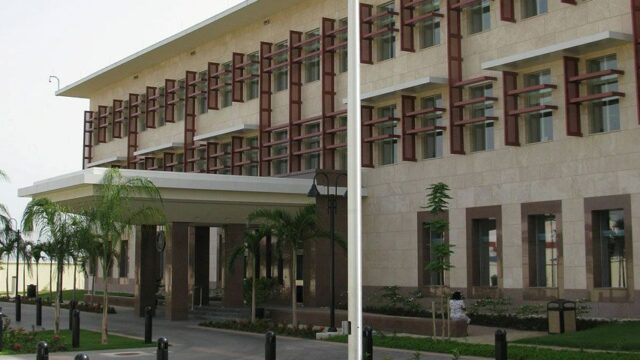
U.S. Embassy Port-au-Prince, Haiti
When Haiti is more prosperous, secure, and firmly rooted in democracy, Haitians and Americans benefit. U.S. policy toward this close neighbor is designed to foster the institutions and infrastructure necessary to achieve strong democratic foundations and meaningful poverty reduction through sustainable development. The United States provides substantial humanitarian assistance so the most vulnerable Haitians can better meet their basic needs in health and nutrition. Assistance for long-term development and institution building is another pillar of U.S.-Haiti bilateral cooperation. Priority areas include support for economic growth and poverty reduction, improved healthcare and food security, promoting respect for human rights, building stronger democratic institutions, and strengthening the Haitian National Police (HNP) so that Haiti provides its own security and can be a stronger partner against international crime.
Since the earthquake, the United States has made available over $5.1 billion for assistance to Haiti to support life-saving post-disaster relief as well as longer-term recovery, reconstruction, and development programs. Even before the earthquake, Haiti was among the least developed nations and faced chronic challenges to meaningful poverty reduction. Against this background, the country’s reconstruction and development will continue for many years. Since 2011, the Haitian Government has emphasized encouraging foreign investment and developing private-led market-based economic growth. President Moïse campaigned on a platform of economic development, innovation, energy reform, and universal education. The Government of Haiti encourages the inflow of new capital and technological innovations and has articulated a commitment to improve the business environment and attract foreign investors. However, reoccurring fuel shortages and insecurity in the second half of 2018 and in early 2019 have begun to discourage investment.
Since 2011, the Haitian Government has emphasized encouraging foreign investment and developing private-led market-based economic growth. President Moïse campaigned on a platform of economic development, innovation, energy reform, and universal education. The Government of Haiti encourages the inflow of new capital and technological innovations and has articulated a commitment to improve the business environment and attract foreign investors. However, reoccurring fuel shortages and insecurity in the second half of 2018 and in early 2019 have begun to discourage investment.
Today, the U.S. embassy is in Port-au-Prince.
Map Link:
Source:
United States Department of State, Office of the Historian and Bureau of Western Hemisphere Affairs
Social Links:
https://www.facebook.com/USEmbassyHaiti